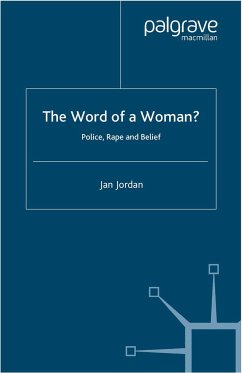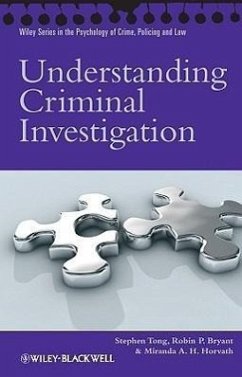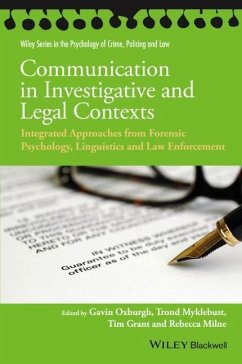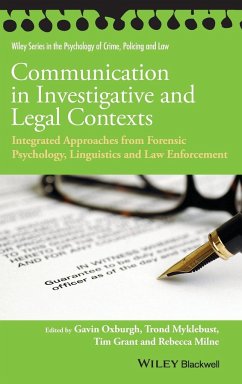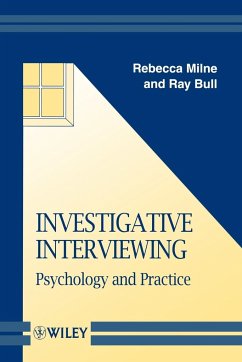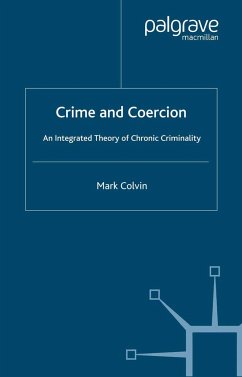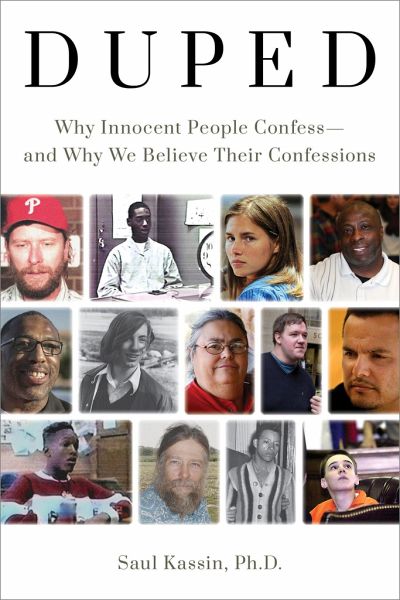
Duped
Why Innocent People Confess - And Why We Believe Their Confessions

PAYBACK Punkte
11 °P sammeln!
Why do people confess to crimes they did not commit? And, surely, those cases must be rare? In fact, it happens all the time—in police stations, workplaces, public schools, and the military. Psychologist Saul Kassin, the world’s leading expert on false confessions, explains how interrogators trick innocent people into confessing, and then how the criminal justice system deludes us into believing these confessions. Duped reveals how innocent men, women, and children, intensely stressed and befuddled by lawful weapons of psychological interrogation, are induced into confession, no matter how...
Why do people confess to crimes they did not commit? And, surely, those cases must be rare? In fact, it happens all the time—in police stations, workplaces, public schools, and the military. Psychologist Saul Kassin, the world’s leading expert on false confessions, explains how interrogators trick innocent people into confessing, and then how the criminal justice system deludes us into believing these confessions. Duped reveals how innocent men, women, and children, intensely stressed and befuddled by lawful weapons of psychological interrogation, are induced into confession, no matter how horrific the crime. By featuring riveting case studies, highly original research, work by the Innocence Project, and quotes from real-life exonerees, Kassin tells the story of how false confessions happen, and how they corrupt forensics, witnesses, and other evidence, force guilty pleas, and follow defendants for their entire lives— even after they are exonerated by DNA. Starting in the 1980’s, Dr. Kassin pioneered the scientific study of interrogations and confessions. Since then, he has been on the forefront of research and advocacy for those wrongfully convicted by police-induced false confessions. Examining famous cases like the Central Park jogger case and Amanda Knox case, as well as stories of ordinary innocent people trapped into confession, Dr. Kassin exposes just how widespread this problem is. Concluding with actionable solutions and proposals for legislative reform, Duped shows why the stigma of confession persists and how we can reform the criminal justice system to make it stop.




